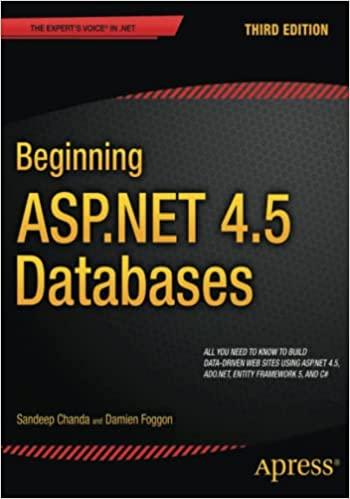Question
How do I prevent the following C++ code from taking in negative values? Any zero or positive integer or decimal I enter as a user
How do I prevent the following C++ code from taking in negative values? Any zero or positive integer or decimal I enter as a user produces correct results, but when I enter a negative value I want the program to tell the user that what they've entered is not a positive integer or decimal, and to re-attempt their entry.
main driver file:
#include
#include
#include
#include "convert.h"
using namespace std;
int main()
{
string str;
cout <<
"Please enter a string representing a positive integer or decimal: ";
cin >> str;
convertToNumeric ctn(str);
long int integerValue = ctn.getIntValue();
double doubleValue = ctn.getDecValue();
double integral;
/* If the string represents an integer value, adding decimal portion to
* the decimal value.
*/
if (std::modf(doubleValue, &integral) == 0)
{
cout << "Integer Conversion: " << integerValue << endl;
cout << "Decimal Conversion: " << std::fixed << std::setprecision(1)
<< integral <
}
/*
* Else, display the values normally.
*/
else
{
cout << "Integer Conversion: " << integerValue << endl;
cout << "Decimal Conversion: " << doubleValue << endl;
}
/*
* Demonstrating that the converted values are useable with
* long int-specific and double-specific operations.
*/
cout << endl;
cout << "Demonstration of long int: " << integerValue << " + 100 = " <<
(integerValue + 100) << endl;
cout << "Demonstration of decimal: " << doubleValue << " + 100.12 = " <<
(doubleValue + 100.12) << endl;
return 0;
}
convert.cpp file:
#include
#include "convert.h"
using namespace std;
convertToNumeric::convertToNumeric()
{
str = "123";
}
/*
* This accessor function is the overloaded constructor that takes a string
* and calls the convert method to convert into respective integer and
* decimal value. There is not return value. The input is s, which is the
* string to be converted.
*/
convertToNumeric::convertToNumeric(string s)
{
str = s;
if(convert(str))
{
cout << "Conversion Successful!" << endl;
}
else
{
cout << "Conversion failed." <
}
}
/*
* This mutator function serves the purpose of converting a string into its
* respective integer and decimal values. The input is s, which is the
* string to be converted. The function returns a boolean value indicating
* whether conversion is successful or not.
*/
bool convertToNumeric::convert(string s)
{
bool success = false;
bool dotFound = false;
/*
* Here, we are looping through each character in the string and storing
* the integer portion in cstk1 and the decimal portion in cstk2.
* Ex: If s = 123.45, cstk1 = 321 and cstk2 = 54
* (since the stack follows LIFO)
*/
for(unsigned int i = 0; i < s.size(); i++)
{
if(s[i] == '.') dotFound = true;
else if(dotFound)
{
cstk2.push(s[i]);
}
else
{
cstk1.push(s[i]);
}
}
/*
* Here, we are popping out each value from stack cstk1 and generating
* the integer value.
* Ex: s = 123.45 and cstk1 = 321, num = 0
* Iteration 1: num = 0 + (3 * 1) = 3
* Iteration 2: num = 3 + (2 * 10) = 23
* Iteration 3: num = 23 + (1 * 100) = 123
* Now intValue = 123
*/
long int num = 0; int multiplyValue = 1;
char val = '0';
while(cstk1.pop(val))
{
int valInInt = val - '0';
num += (valInInt * multiplyValue);
multiplyValue *= 10;
}
intValue = num;
/*
* Here, we are popping out each value from stack cstk2 and generating
* the decimal value.
* Ex: s = 123.45 and cstk2 = 54, num = 0, doubleValue = 123
* (equated to integer value)
* Iteration 1: num = 0 + (5 * 1) = 5
* Iteration 2: num = 5 + (4 * 10) = 45
* Iteration 3: num = 45 / 100 = 0.45
* Now doubleValue = 123 + 0.45 = 123.45
*/
doubleValue = double(num);
num = 0; multiplyValue = 1;
while(cstk2.pop(val))
{
int valInInt = val - '0';
num += (valInInt * multiplyValue);
multiplyValue *= 10;
}
doubleValue += (double(num) / multiplyValue);
success = true;
return success;
}
/*
* The accessor function below is returning the integer value of the string
* that has been converted.
*/
long int convertToNumeric::getIntValue()
{
return intValue;
}
/*
* The accessor function below is returning the double value of the string
* that has been converted.
*/
double convertToNumeric::getDecValue()
{
return doubleValue;
}
Step by Step Solution
There are 3 Steps involved in it
Step: 1

Get Instant Access to Expert-Tailored Solutions
See step-by-step solutions with expert insights and AI powered tools for academic success
Step: 2

Step: 3

Ace Your Homework with AI
Get the answers you need in no time with our AI-driven, step-by-step assistance
Get Started


